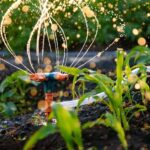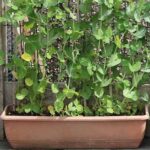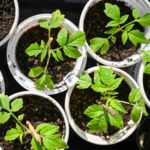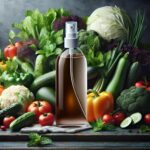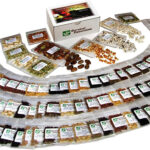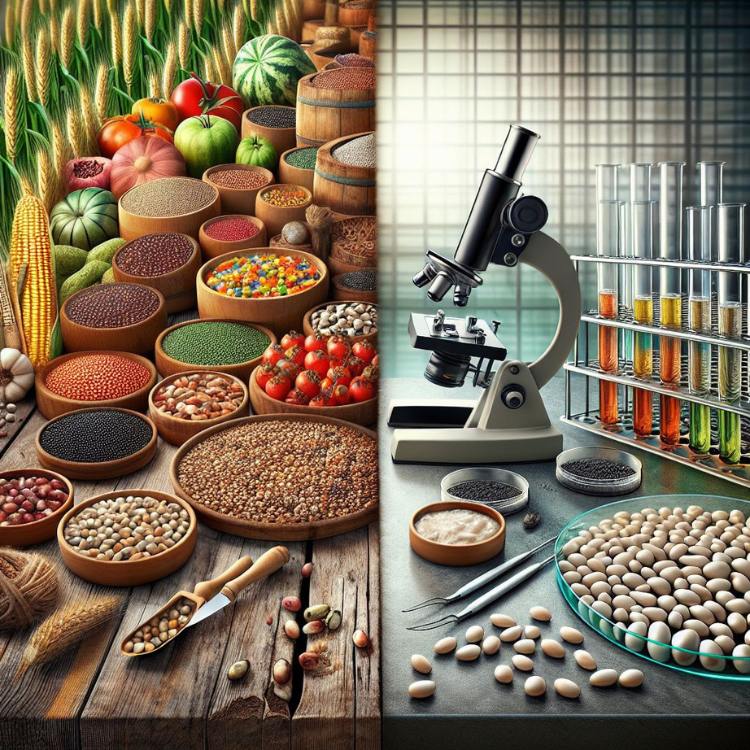
Key Takeaways
- Heirloom seeds are non-GMO and offer a diversity of flavors and nutritional benefits.
- These seeds maintain their genetic purity across generations, ensuring consistent growing experiences.
- Gardening with heirloom seeds supports biodiversity and helps preserve our cultural heritage.
- By saving seeds from your heirloom plants, you can become more self-sufficient and resilient.
- Choosing heirloom seeds is a step towards sustainable living and protecting the environment.
Heirloom vs. GMO: Clearing the Air
When you hear the term “GMO”, it might conjure images of science labs and petri dishes. But let’s talk about something that’s the polar opposite: heirloom seeds. These seeds are all about natural genetics and tradition. So, what’s the big deal with heirloom seeds, and why should you care? Let’s dive in.
Defining Heirloom Seeds
Imagine a seed that has been passed down through generations, from your great-grandmother’s garden to your own. This is the essence of an heirloom seed. But it’s not just about nostalgia; it’s about quality and sustainability. Heirloom seeds are:
- Open-pollinated, meaning they’re pollinated naturally by wind or insects.
- True to type, so plants will look and taste like the parent plant.
- Non-GMO, which means they haven’t been genetically modified in a lab.
Because of these traits, heirloom seeds produce plants that are well-adapted to local growing conditions and are often more nutritious and flavorful than their commercial counterparts.
Understanding GMOs
On the other hand, GMOs (genetically modified organisms) are created by altering the genetic makeup of a plant in ways that can’t occur naturally. This is done to give plants new traits, like resistance to pests or tolerance to herbicides. While this might sound good on paper, it raises concerns about long-term health effects and environmental impact.
Top Reasons to Choose Heirloom Seeds
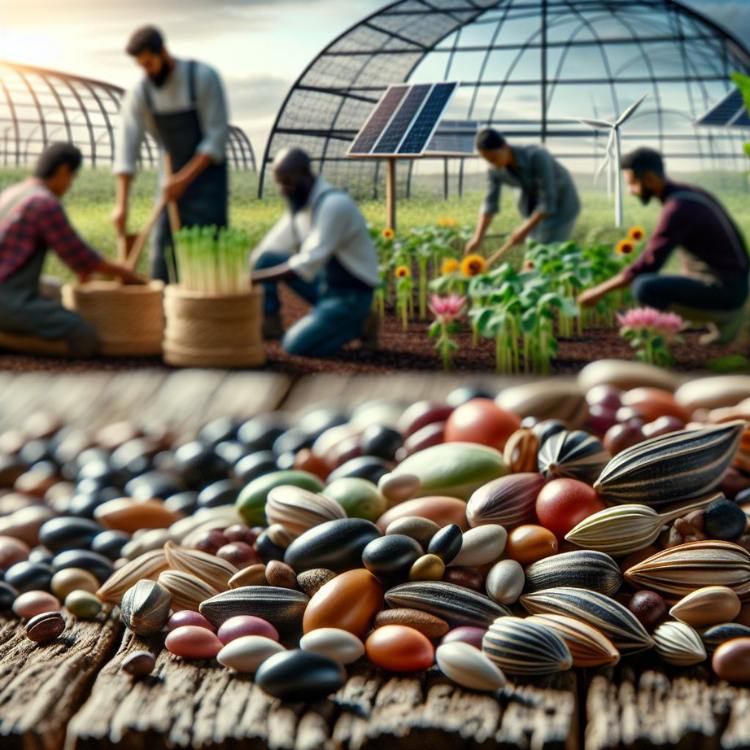
Choosing heirloom seeds isn’t just a gardening decision; it’s a statement about the world you want to live in. Here are the top reasons why heirloom seeds are worth your attention:
Taste the Past: Flavor and Nutritional Superiority
Heirloom vegetables are renowned for their vibrant flavors. Imagine biting into a tomato that bursts with taste, unlike anything you’d find on a supermarket shelf. This isn’t just hearsay; it’s the result of heirloom plants focusing on flavor over shelf life or transportability.
“Heirloom seeds are the keepers of flavor. Each variety is a legacy of our cultural past and a tasty promise for our future.”
But it’s not only about taste. Heirloom plants often contain higher levels of nutrients than their conventional counterparts. This is because they haven’t been bred for mass production, which can dilute nutritional content.
Pure Genetics: Consistent Growing Experiences
With heirloom seeds, what you plant is what you get. These seeds haven’t been tampered with to create uniform crops, as many commercial seeds have. This means they carry the genetic blueprint of their ancestors, offering a consistent growing experience year after year. It’s like having a trusted family recipe that never fails to produce the same delicious result.
Preserving Cultural Heritage
Every heirloom seed has a story. Some have been treasured within families or communities for their unique flavors or resilience to local climate challenges. When you plant heirloom seeds, you’re not just growing food; you’re nurturing a piece of history and preserving the diverse agricultural practices that are part of our global heritage.
Seed Sovereignty and Independence
By growing heirloom seeds, you’re taking a stand for seed sovereignty—the right to save and share seeds, and to have control over your own food supply. This independence from commercial seed companies is a powerful step towards self-reliance and sustainability.
“Heirloom seeds are the embodiment of gardening freedom, allowing us to break free from the cycle of buying seeds year after year.”
Biodiversity: The Ecosystem’s Palette
Heirloom seeds are the champions of biodiversity. Each variety is a unique color in the ecosystem’s palette, contributing to the health and balance of our environment. This diversity is not just beautiful; it’s crucial for the resilience of ecosystems and the adaptability of our food systems to changing conditions.
Cultivating Your Heirloom Garden
Starting your own heirloom garden is an adventure that brings rewards beyond the harvest. It connects you with the earth and gives you a role in the stewardship of our botanical heritage. Here’s how to get started:
Selecting the Right Heirloom Seeds
When choosing heirloom seeds, consider your local climate, soil type, and the foods you love to eat. Look for varieties that are known to thrive in your area and that pique your culinary curiosity. Remember, one of the joys of heirloom gardening is discovering new flavors and textures.
- Research local heirloom varieties that are well-suited to your region.
- Choose plants that fit your dietary preferences and cooking style.
- Opt for seeds with a history of success in organic, low-input conditions.
Planting Techniques for Maximum Yield
Maximizing yield in your heirloom garden is about understanding the needs of each plant. Heirloom varieties often require different care than commercial types. They may need more space to grow, specific pruning techniques, or particular soil amendments. It’s all about getting to know your plants and nurturing them as individuals.
Harvesting and Seed Saving
One of the most rewarding aspects of heirloom gardening is harvesting your own seeds for next year’s garden. Select the healthiest and most vigorous plants as your seed source. Allow some of your best specimens to go to seed, then collect, dry, and store them carefully. This way, you’re not just a gardener; you’re a custodian of the future.
Beyond the Backyard: Heirloom Seeds in Sustainable Agribusiness
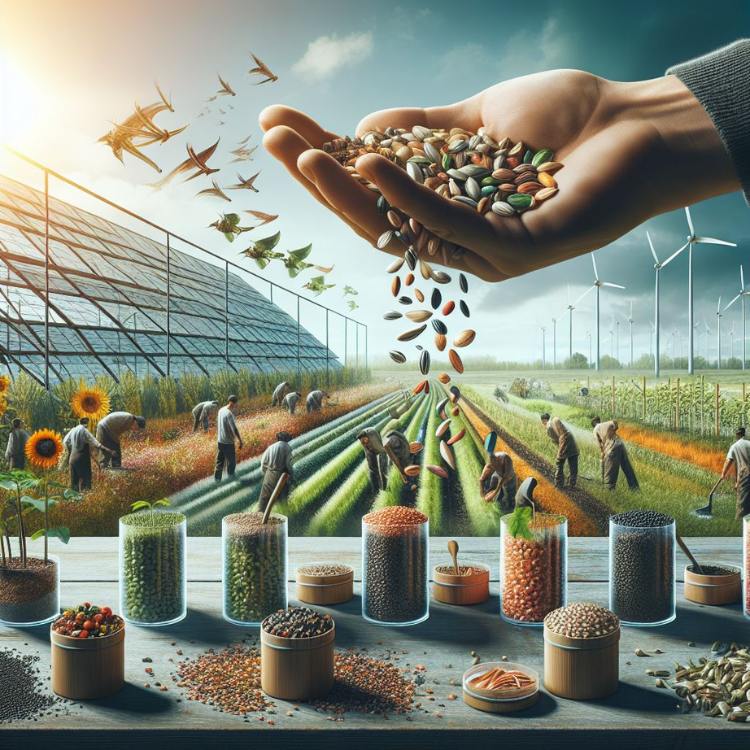
Heirloom seeds have a place beyond the personal garden—they’re gaining ground in sustainable agribusiness as well. Small-scale farmers and market gardeners are finding that heirloom varieties can offer a competitive edge in the marketplace, thanks to their unique characteristics and stories that resonate with eco-conscious consumers.
Small-Scale Farming Success Stories
Across the globe, small-scale farmers are turning to heirloom seeds to revitalize their land and their livelihoods. They’re finding that these seeds not only produce crops that are resilient and full of flavor but also that they can become a unique selling point for consumers seeking authentic, sustainably-grown produce.
Heirloom Marketability: From Local to Global
Heirloom produce is not just for local farmers’ markets anymore. As awareness grows, so does the demand for these natural, flavorful varieties. Restaurants, specialty grocers, and even international markets are looking for high-quality heirloom products. This trend is opening new opportunities for growers who prioritize biodiversity and heritage over mass production.
Sprouting New Beginnings: Start Your Heirloom Journey
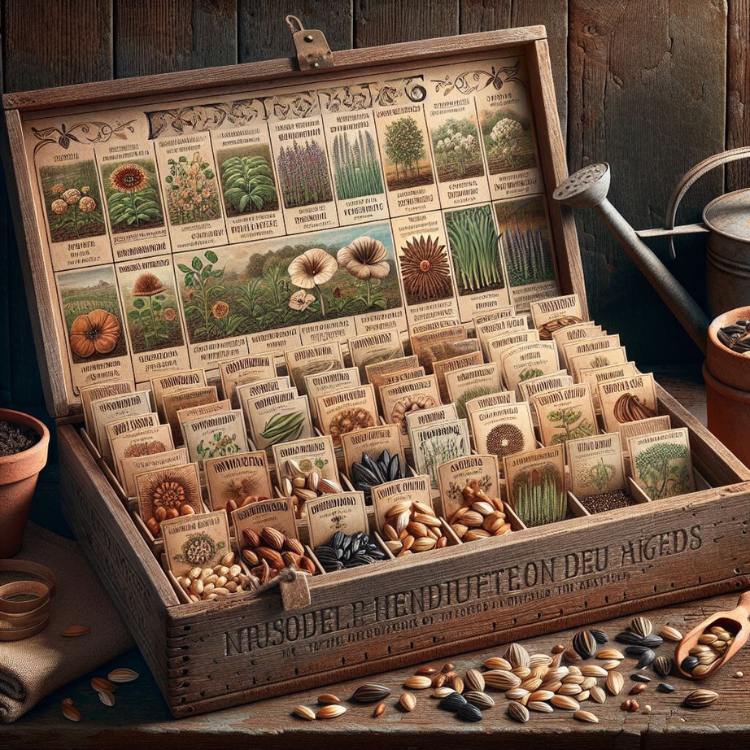
Now that you know the benefits and the beauty of heirloom seeds, it’s time to take the first step on your heirloom journey. Whether you’re a home gardener, a community organizer, or a small-scale farmer, heirloom seeds have a role to play in your sustainable future. So, why wait? Start exploring the rich tapestry of heirloom varieties and plant the seeds of change in your garden today.
Shop for Heirloom Seeds Today!
Ready to embrace the heirloom revolution? Visit Survival Essentials and discover a world of seeds that will not only bring unmatched flavors to your table but also contribute to a healthier, more sustainable world. Choose from a curated selection of heirloom seeds and start your journey towards a more resilient and delicious future.
In an era where genetically modified organisms (GMOs) are the norm, the benefits of natural heirloom seeds are more pronounced than ever. Heirloom seeds are not only free from genetic modification, but they also carry the history and flavor of the past, offering a variety of tastes and textures that have been passed down through generations. Opting for heirloom seeds can help preserve biodiversity and can provide a more nutritious and flavorful crop. In the fight for food sovereignty and environmental sustainability, heirloom seeds are a small but powerful tool in a much larger agricultural arsenal.
Now that you know the benefits and the beauty of heirloom seeds, it’s time to take the first step on your heirloom journey. Whether you’re a home gardener, a community organizer, or a small-scale farmer, heirloom seeds have a role to play in your sustainable future. So, why wait? Start exploring the rich tapestry of heirloom varieties and plant the seeds of change in your garden today.
Ready to embrace the heirloom revolution? Visit Survival Essentials and discover a world of seeds that will not only bring unmatched flavors to your table but also contribute to a healthier, more sustainable world. Choose from a curated selection of heirloom seeds and start your journey towards a more resilient and delicious future.
Frequently Asked Questions (FAQ)
As we wrap up our exploration of heirloom seeds, you might still have some questions. Let’s address some common queries to help you become a more informed gardener and advocate for heirloom varieties.
- What exactly qualifies a seed as ‘heirloom’?
- Are all heirloom seeds also organic?
- How do heirloom seeds contribute to biodiversity?
- Is it possible to save and use seeds from hybrid plants?
- Why don’t all farmers use heirloom seeds?
What Makes a Seed ‘Heirloom’?
An heirloom seed is typically defined as a variety that has been passed down through several generations of a family or community. It is open-pollinated, meaning it relies on natural pollination from insects or the wind. Most importantly, an heirloom variety has been cultivated for at least 50 years, and it produces offspring that are true to type, ensuring the preservation of specific plant characteristics over time.
Are All Heirloom Seeds Organic?
While heirloom seeds are non-GMO and often grown using traditional methods, not all heirloom seeds are certified organic. Organic certification requires meeting specific standards for cultivation, including avoiding synthetic pesticides and fertilizers. However, many heirloom seeds are indeed grown organically, and sourcing from reputable suppliers can ensure you’re getting the quality you desire.
How Do Heirloom Seeds Affect Biodiversity?
Heirloom seeds are vital for maintaining biodiversity. They offer a vast array of plant varieties with unique traits, which can help ecosystems remain resilient in the face of challenges such as climate change, disease, and pests. By cultivating a wide range of heirloom plants, gardeners and farmers contribute to the genetic diversity necessary for healthy, balanced ecosystems.
Can I Save Seeds From Hybrid Plants?
While you can save seeds from hybrid plants, the next generation of plants may not retain the desired characteristics of the parent plant. Hybrids are created by crossbreeding two different varieties, and their seeds often revert to showing traits of one of the parent varieties or a mix of both, which can be unpredictable. Heirloom seeds, in contrast, will produce plants that are consistent with the parent’s traits.
Why Aren’t All Farmers Using Heirloom Seeds?
There are several reasons why not all farmers use heirloom seeds. Many commercial farmers opt for hybrid or GMO seeds because they have been bred for specific characteristics, such as higher yields, uniformity, and shelf stability, which are beneficial for large-scale production. However, there is a growing movement of farmers who are returning to heirloom seeds for their superior flavor, nutritional value, and environmental benefits.
As we’ve seen throughout this discussion, heirloom seeds offer a wealth of benefits for gardeners, farmers, and the environment. By choosing to plant heirloom seeds, you’re not only harvesting delicious, nutritious produce, but you’re also participating in a legacy of sustainable agriculture and biodiversity. Remember, every seed planted is a step towards a greener, more sustainable future. So go ahead, make your mark and sow the seeds of tomorrow, today!

